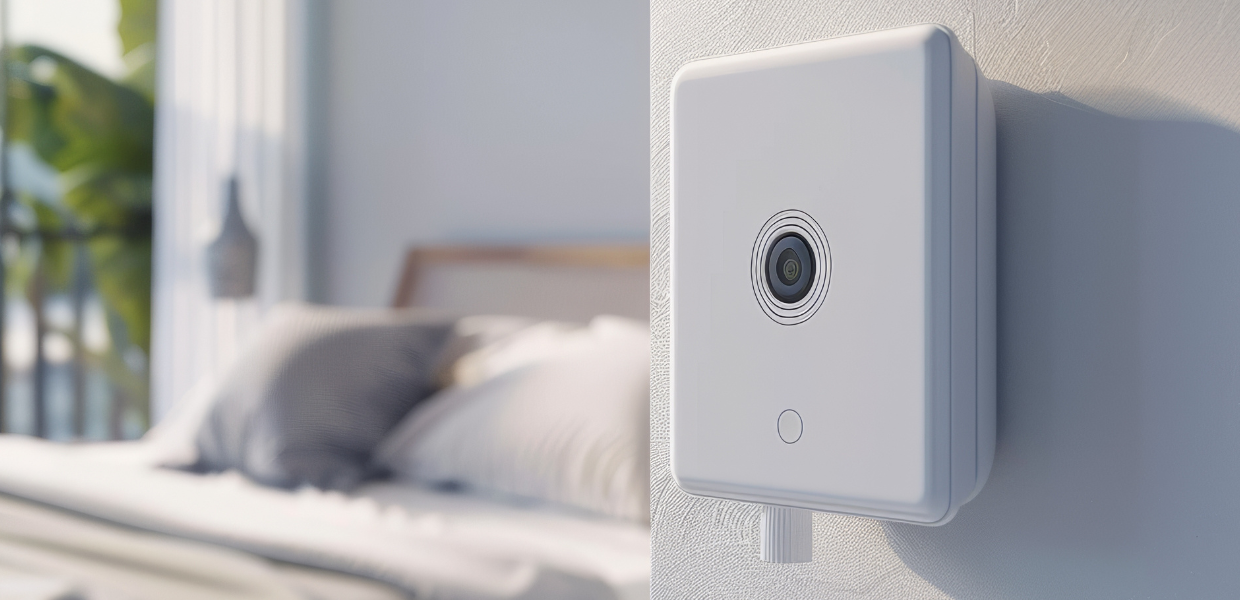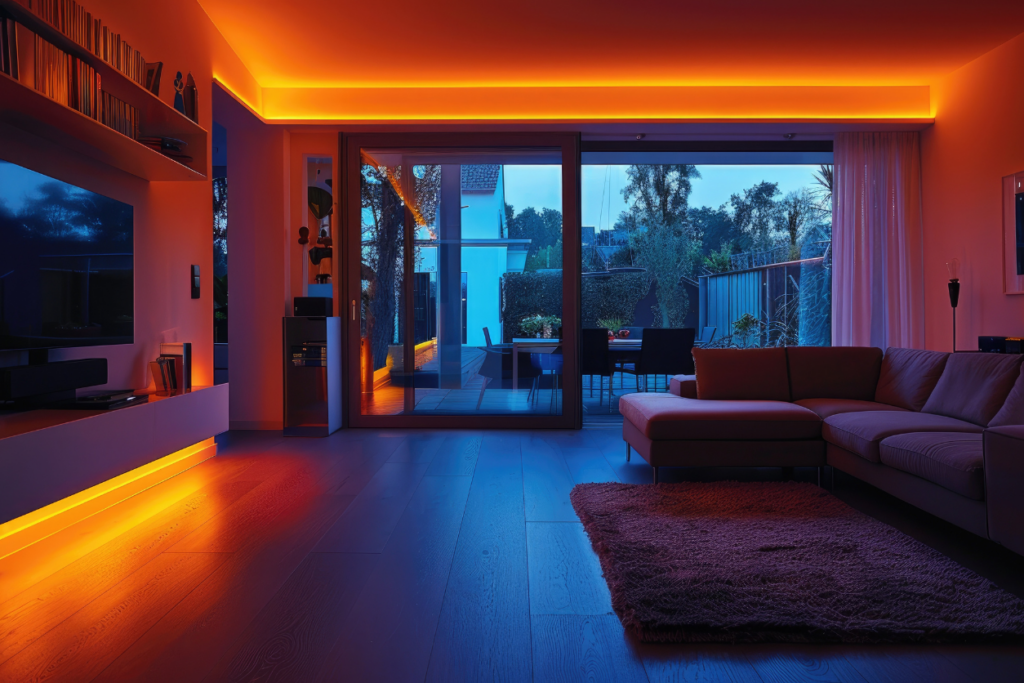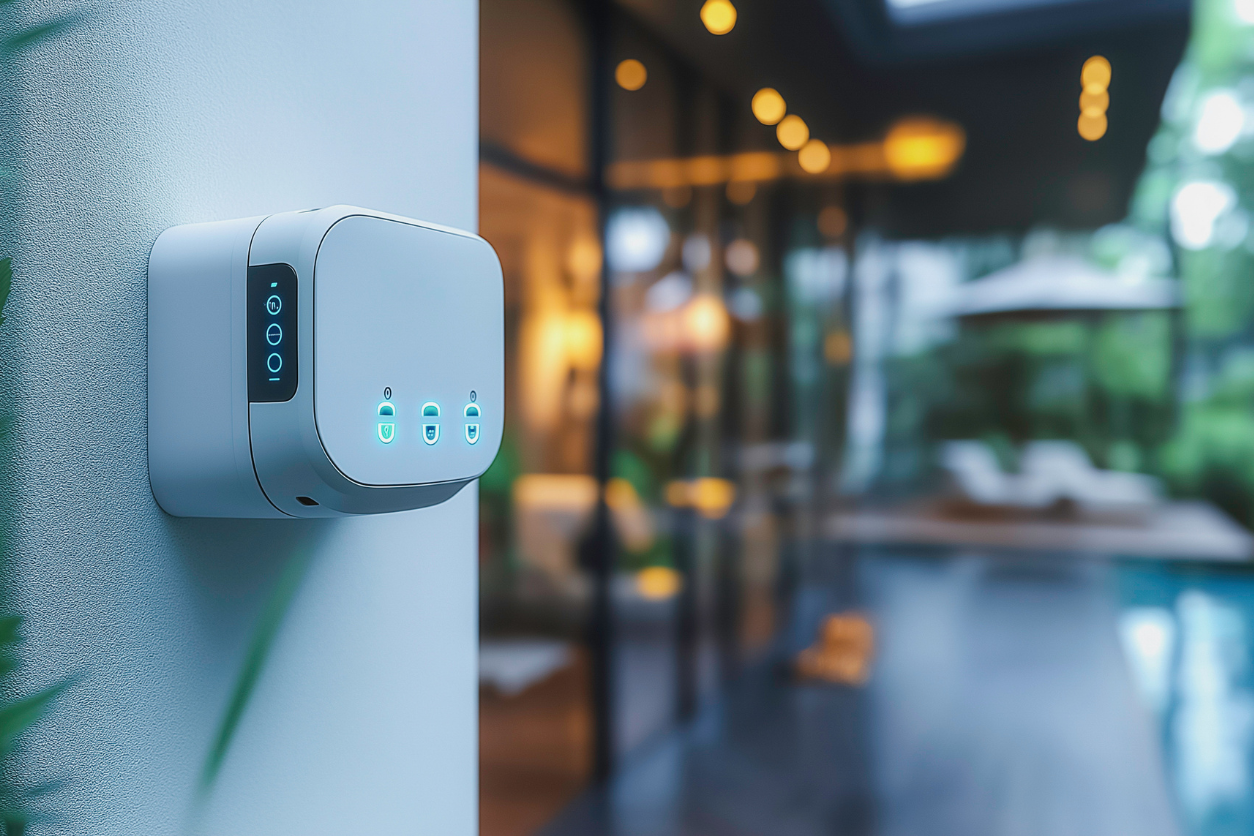
Smart motion sensors have emerged as a viable technology for improving cost efficiency and sustainability in hotels by helping manage energy consumption, streamline operations, and enhance guest experiences.
Beyond simply detecting movement, motion sensors in hotel rooms provide multiple benefits, including:
By integrating these sensors into a hotel’s infrastructure, properties can potentially reduce energy waste, lower operational costs, and reduce their environmental footprint.
Putting hotel motion sensors in the spotlight, this article examines the emerging applications, advantages, and infrastructure needs in utilizing this advanced technology.
As more hotels adopt automation technology to streamline operations and energy utilization, motion sensors are leading the charge. These investments offer a range of applications that directly benefit hotels’ bottom lines.
Below we delve into some of the key uses of motion sensors and how they contribute to a more sustainable and cost-effective hotel experience.

Motion sensors in hotel rooms play a crucial role in automating lighting systems. When a guest enters the room, the sensors detect movement and automatically activate the lights, creating a welcoming atmosphere.
Conversely, when the room is unoccupied, the lights are automatically turned off, preventing unnecessary energy consumption. This simple yet effective measure can lead to substantial energy savings over time, potentially reducing both costs and environmental impact.
Smart thermostats equipped with motion sensors offer significant benefits for hotel energy management. These hotel motion sensor thermostats detect room occupancy and adjust temperature settings accordingly.
When a room is empty, the HVAC system can be set to an energy-saving mode, reducing both energy usage and costs. Upon the guest’s return, the system quickly restores the preferred temperature, maintaining comfort without compromising efficiency. Intelligent controls, including hotel motion sensor thermostats, can contribute to energy savings of 20-30% for HVAC systems.
Motion sensors are revolutionizing housekeeping operations in hotels. By detecting room occupancy, hotel motion sensors help determine the optimal times to send cleaning staff, improving efficiency and reducing disturbances to guests.
This has the potential to not only enhance the guest experience but also allow hotels to allocate their resources more effectively, potentially reducing labor costs and improving overall operational efficiency.
Motion sensors can be significant supplements to hotel security. They can detect unauthorized entry into restricted areas or unoccupied rooms, alerting security personnel to potential breaches. This added layer of security may help protect both guests and hotel assets by enhancing overall safety within the property.
Hotel motion sensors can be integrated with air quality monitoring systems. When occupancy is detected, these systems can automatically adjust ventilation rates to help improve air quality. This promotes a healthier environment for guests while helping improve energy usage by avoiding unnecessary ventilation in unoccupied spaces.
Motion sensors in hotel rooms are part of a larger ecosystem of connected devices, working together to create a smart, efficient environment. Hotel motion sensors can integrate with various IoT technologies helping enhance their functionality and expand their impact on hotel operations.
Integrating motion sensors with these hotel IoT technologies can potentially reduce costs and support sustainability efforts. By creating a network of interconnected devices, hotels can achieve more efficient energy management, reducing electricity and HVAC expenses. The real-time data provided by these sensors allows for predictive maintenance, potentially lowering repair costs and extending the lifespan of equipment.
The automation enabled by this connectivity may lead to more efficient labor allocation. For instance, housekeeping staff can be deployed more efficiently based on actual room usage data. The ability to monitor and control systems remotely also reduces the need for on-site personnel, further cutting operational costs.
By leveraging cloud platforms and mobile applications, hotels can analyze occupancy patterns and energy usage trends, leading to data-driven decisions that optimize resource allocation and further reduce expenses. This smart, connected approach not only improves operational efficiency but also enhances guest experiences, helping increase customer satisfaction and loyalty.

As hotels increasingly adopt smart technologies like motion sensors to optimize efficiency and sustainability, a reliable and robust WiFi infrastructure becomes crucial. Blueprint RF is a trusted provider of managed WiFi solutions specifically tailored for the hospitality industry, offering a foundation for hotels looking to implement advanced automation systems.
Blueprint RF’s customized hotel WiFi solutions are designed to support a wide range of IoT devices, including motion sensors and other automation technologies. Their approach goes beyond simply providing internet connectivity:
By partnering with Blueprint RF, hotels can rest easy knowing that their investment in motion sensors and other automation technologies is supported by high-performance connectivity. This secure foundation promotes the functionality of these smart devices and can contribute to improved guest experiences, operational efficiency, and ultimately, cost savings.